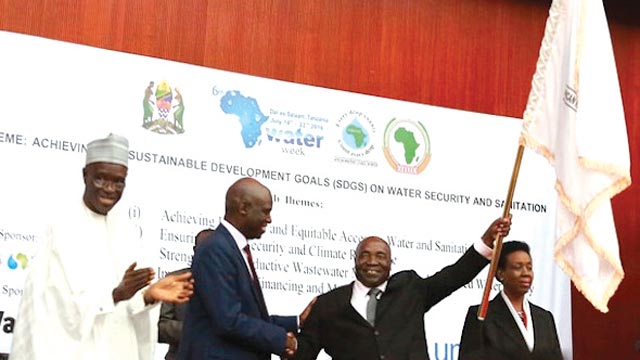32 delegates of a 5-day seminar in Monrovia (Sept. 26-30) that was organized by the International Water Association (IWA) have been urged to set up Water Safety Plan (WSP) bodies in their organizations to make sure the provision of safe drinking water to the public.
A Water Safety Plan (WSP) is a comprehensive risk assessment and risk management approach that encompasses all steps in water supply from the catchment to the consumer.
Unathi Jack, the facilitator of the event from Emanti, a South African-based water and environmental engineering services firm, said the importance of clean and safe drinking water to the citizens is a necessity for the delegates to come up with management principles from the workshop that could benefit Liberia.
She said the Water Safety Plan approach that was developed by the World Health Organization (WHO) and the International Water Association (IWA), is applicable to all types of water supply systems.
Ms. Jack who was addressing a gathering, including Liberia Water & Sewer Corporation ,students from the University of Liberia, UMU, Red Cross, among others said that WSP’s objectives are “minimizing contamination in source waters, reducing or removing contamination by treatment and preventing contamination during storage, distribution and handling.”
The session also deliberated on the proliferation of companies that produce mineral water in Liberia that many people said have noted they have not followed effective health methods in their production of water for the general public.
A manual that was developed by WHO/IWA that was given to every participant outlines a modular 11-step approach on which the training package is based.
The seminar is mainly aimed at offering a better understanding of WSP and the delegates will become aware of their responsibilities in offering clean and safe drinking water to consumers.
The delegates are being assisted to learn cost saving mechanisms in reducing or eliminating any unnecessary monitoring and testing together with reducing the need for treatment or improving maintenance and communication with the relevant stakeholders and management in the operations of a water facility.
The seminar has many case study materials as points of discussion of interest in several major cities in the world. However, they have been asked to learn the principles and see how best they can guide participants in developing local content.

Leave a Reply